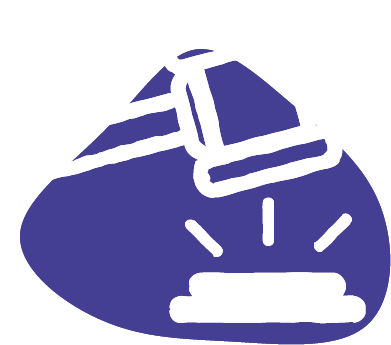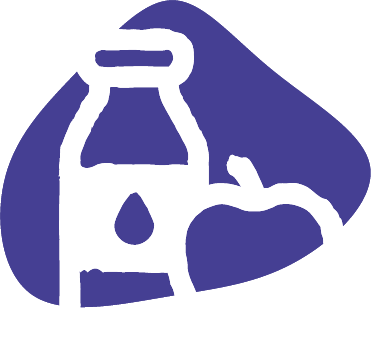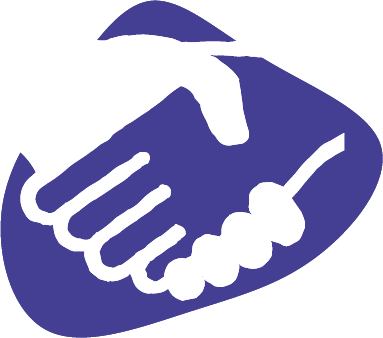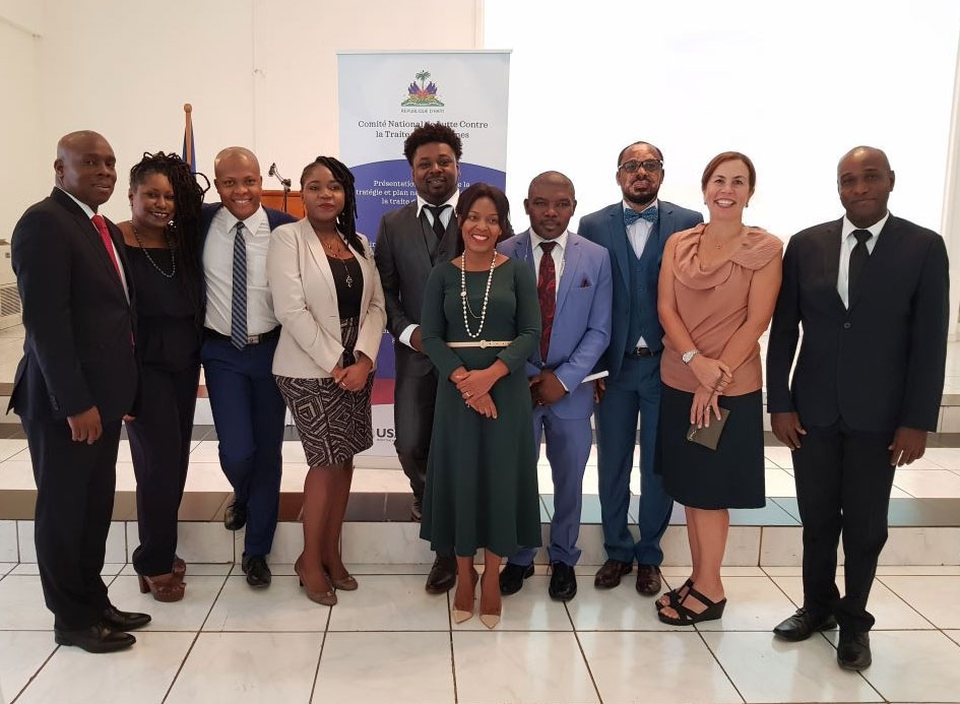Lumos in Haiti
In January 2015, Lumos began working in Haiti – the poorest country in the Western Hemisphere – where an estimated 25,344 children live in 571 institutions.

Supported Haiti’s national counter-trafficking committee’s anti-trafficking activities
We supported the creation of 9 regional anti-trafficking sub-committee and trained committee members to reinforce national anti-trafficking activities and procedures.

Worked with local partners to supply aid after Hurricane Matthew
We partnered with the South Department to provide medical care, food, water, school supplies, to over 2,000 children, including those in orphanages, as part of the response to Hurricane Matthew

Partnered with the government and other stakeholders to assess 571 orphanages
This revealed that only one in four was licensed to operate and found evidence of abusive practices in many of them.
Following the earthquake in January 2010, the number of orphanages in Haiti increased by at least 150%. An estimated 25,344 children – most of whom have at least one living parent –live in Haiti’s orphanages.
Whilst the construction of institutions has become the go-to international response to child vulnerability, research increasingly demonstrates this is not the best approach and that institutions, once established, proliferate long after the disaster.
There are approximately 571 institutions in Haiti. 99.6% of these are privately run and only 25% are licensed to operate.Lumos research estimates that over $100 million in international donor funding goes to institutions in Haiti every year. There are considerable challenges with this system. While some institutions struggle to provide a decent standard of care, others deliberately exploit children to solicit funds from donors, a form of child trafficking.
The main reasons that children end up in institutions are poverty and a lack of access to basic health, education and social services. Out of desperation, parents place their children in orphanages hoping they will receive better care than they believe they can provide. But, too often, this is not the case, asorphanages cannot meet children’s individual needs. Case evidence demonstrates that many of the 25,344 children could be at home with their families if basic health and education costs were covered.

Supported Haiti’s national counter-trafficking committee’s anti-trafficking activities
We supported the creation of 9 regional anti-trafficking sub-committee and trained committee members to reinforce national anti-trafficking activities and procedures.

Worked with local partners to supply aid after Hurricane Matthew
We partnered with the South Department to provide medical care, food, water, school supplies, to over 2,000 children, including those in orphanages, as part of the response to Hurricane Matthew

Partnered with the government and other stakeholders to assess 571 orphanages
This revealed that only one in four was licensed to operate and found evidence of abusive practices in many of them.
Following the earthquake in January 2010, the number of orphanages in Haiti increased by at least 150%. An estimated 25,344 children – most of whom have at least one living parent –live in Haiti’s orphanages.
Whilst the construction of institutions has become the go-to international response to child vulnerability, research increasingly demonstrates this is not the best approach and that institutions, once established, proliferate long after the disaster.
There are approximately 571 institutions in Haiti. 99.6% of these are privately run and only 25% are licensed to operate.Lumos research estimates that over $100 million in international donor funding goes to institutions in Haiti every year. There are considerable challenges with this system. While some institutions struggle to provide a decent standard of care, others deliberately exploit children to solicit funds from donors, a form of child trafficking.
The main reasons that children end up in institutions are poverty and a lack of access to basic health, education and social services. Out of desperation, parents place their children in orphanages hoping they will receive better care than they believe they can provide. But, too often, this is not the case, asorphanages cannot meet children’s individual needs. Case evidence demonstrates that many of the 25,344 children could be at home with their families if basic health and education costs were covered.
Lumos in Haiti
Lumos began work in Haiti in January 2015, as part of a joint programme with key governmental and NGO partners to transform care services for vulnerable children and families by 2030.
The team in Haiti has worked closely with the Institute of Well-being and Research (IBESR) – the government department responsible for children – and supported the closure of 13 institutions since 2016. 242 children have been able to go home to their families, with support. We have been working with the government and local partners to trace families and prepare children and families for reunification.
In one case, while the local authorities were focused on the emerging COVID-19 pandemic, an institution Lumos was supporting to close attempted to move 47 children to another location. We were able to prevent this from happening, and reunited 20 of the children with their families while supporting the remaining children until they are able to be reunited with their families. So far, we have supported a total of 117 carers and 198 children during the pandemic by providing cash grants, emergency food and hygiene kits, and access to medical and psychosocial support.
On 31 July 2019, we launched a project to tackle human trafficking in partnership with USAID. The BEST project – Building Enduring Systems to End Trafficking in Persons – has been supporting the Haitian government, local authorities and civil society to prevent, recognise and respond to trafficking and to protect victims. The project has, and will continue to, help protect thousands of vulnerable children and at least 500 human trafficking victims.

Representatives from Lumos and partners in Haiti at the launch of the BEST project
The risk of trafficking
There is growing evidence of the heightened risk of children being trafficked and exploited, commercially and at times sexually, in Haiti’s orphanages. Some orphanages in Haiti are established with the best of intentions and strive to provide adequate care.
However, case evidence suggests a consistent pattern of behaviour, including orphanage ‘directors’ paying ‘child-finders’ to recruit children for the orphanage. In some instances, families are paid to give their children away. In others they are deceived into believing their children will receive an education and have a better life. The orphanage uses the children to persuade donors to give them money. The sums received are far in excess of the money spent on looking after children.
Lumos has worked with Haiti’s National Counter-Trafficking Committee to end this harmful practice and ensure the specific phenomenon of trafficking of children in orphanages could be addressed.

